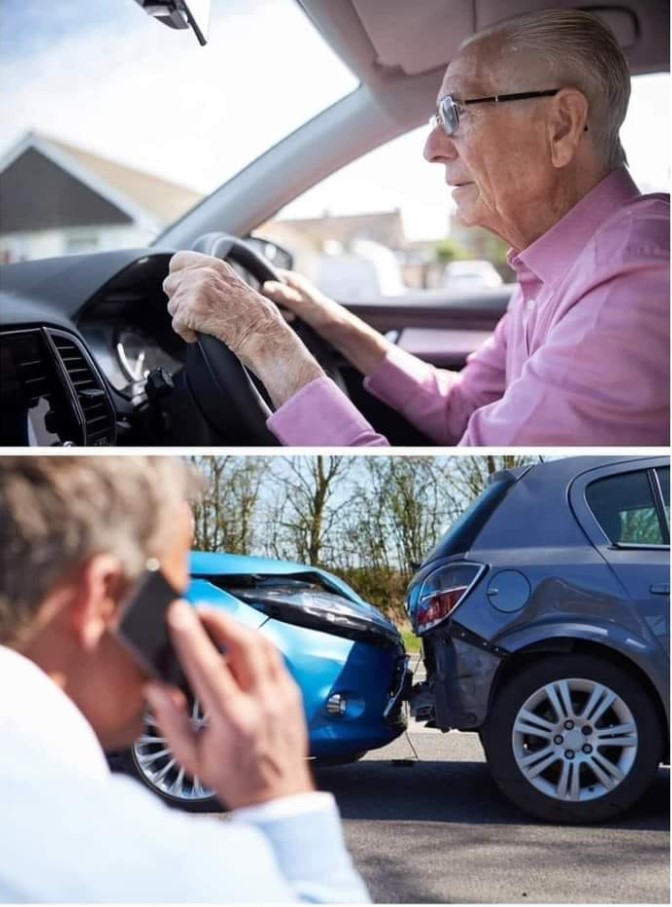An elderly man rear-ended a guy driving an expensive European sports car. Enraged, the guy hops out and confronts the old man. He yells,
“Look what you did to my car! You’re going to give me $10,000 right now or I’m going to beat you to a pulp!”
“Oh my…” the old man said nervously. “I don’t have that kind of money. Let me call my son.” he said with hope. “He trains dolphins and he will know what to do.”
“Dolphins!” the other driver huffed, while rolling his eyes.
The old man pulled out his phone, dialed his son, and just as his son answered, the irate man snatched the phone away from the old man.
“So, YOU’RE a dolphin trainer, huh?” The irate man yelled, “Well, your old man here just rear-ended my car and I need TEN GRAND right now, or I’m going to beat you AND your old man to a pulp!”
“I’ll be there in 10 minutes.” says the voice calmly on the other end.
Read more :-
Every day in the U.S. in 2018, motor vehicle crashes killed more than 20 people over age 65 and injured almost 700. Older adults are the most responsible drivers of any age group — they tend to obey speed limits and avoid driving at night and in bad weather, for example — but the physical changes of aging put them at risk of accidents.
Researchers at Washington University School of Medicine in St. Louis have received three grants totaling more than $10 million to study the factors that contribute to deterioration in driving skills in older adults and to determine ways to identify people whose driving skills have begun to decline or are on the verge of slipping. The ultimate goal is to understand who’s at risk behind the wheel so doctors can intervene to help them preserve their skills or safely adapt to new limitations.
“Driving is an integral part of the American identity,” said Ganesh Babulal, PhD, OTD, an assistant professor of neurology. Babulal is the principal investigator on two of the grants and a co-principal investigator on the third. “For the next three decades, there’s going to be massive growth of the aging population, and driving — not autonomous vehicles or ride-sharing, but driving yourself — will continue to be the primary method of transportation.”
Two of the grants — one from the BrightFocus Foundation and the other from the National Institutes of Health (NIH) — support studies to determine whether driving changes can identify people with mild and very mild cognitive impairment, and maybe even identify people in the earliest, presymptomatic stage of Alzheimer’s disease.
Alzheimer’s affects one in 10 people over age 65. The disease develops slowly, beginning with the buildup of protein plaques in the brain two decades or more before cognitive symptoms arise.
“Alzheimer’s disease affects more than just thinking and memory,” said Catherine Roe, PhD, an associate professor of neurology and a co-principal investigator on the NIH grant. “It affects your reaction time, eyesight, strength and gait, mood. All of these factors also are related to driving, so it’s not unreasonable to suppose that you might see some effect on driving even before cognitive symptoms are apparent.”





